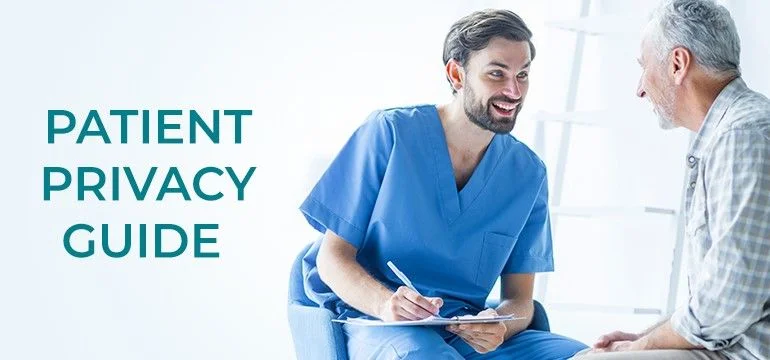
As a nurse, you usually spend your day taking care of your patients, which includes working on their information.
You record patient information, review their medical histories, manage therapy, and administer the prescribed medication.
Experienced nurses are well aware that patient information is sacred and protected by federal law.
But it is crucial to review the patient privacy rights regularly and check if the hospital or clinic that you are working with is in compliance.
Moreover, new nurses are still not yet well-oriented with patient privacy.
The federal legislation that protects patient privacy rights in the US are written in legal jargon and a bit complicated that it is impossible for one person (unless he or she has legal background) to absorb and understand.
That's why Pulse Uniform created this definitive guide to help nurses (experienced and newbies) to understand patient privacy rights and prevent possible violations.
In general, nurses and other healthcare professionals have the legal duty to protect confidential information about patients unless required by law to disclose the information.
In general, nurses and other healthcare professionals have the legal duty to protect confidential information about patients unless required by law to disclose the information.
In 2015, the American Nurses Association (ANA) published a position statement that includes the following recommendations:
The Health Insurance Portability and Accountability Act of 1996 (HIPAA) is a law in the US that mandated the establishment of federal standards to safeguard sensitive patient medical data from being disclosed without knowledge or consent.
The HIPAA Privacy Rule was issued by the US Department of Health and Human Services (HHS) to implement the requirements of the law.
Healthcare professionals must be familiar with the HIPAA Privacy Rule to protect how patient information is used while allowing the flow of medical information required to provide medical service.
The following types of individuals and organizations are considered covered entities under the HIPAA Privacy Rule:
The HIPAA Privacy Rule protects all health information that is “individually identifiable” in any form of media whether paper, electronic, or oral.
The following information are known as “protected health information” or PHI:
In order to be identifiable, the information should be accessed with common identifiers such as patient name, address, social security number, birthday, etc.
Another important US legislation that aims to protect patient private information is known as the HITECH Act, which is short for the Health Information Technology for Economic and Clinical Health.
The HITECH Act is an important provision of the American Recovery and Reinvestment Act of 2009 known as ARRA. It is created to encourage medical organizations to implement electronic health records (EHR).
While the HITECH Act primarily provides incentives for hospitals in digitizing their medical records, it also expanded the scope of security and privacy protections stipulated by HIPAA compliance.
With the HITECH Act, non-compliant healthcare organizations and covered individuals may have higher legal liability.
Health care providers like doctors and nurses must comply with patient rights to:
As healthcare professionals, nurses and doctors also have the duty to educate the patients about their privacy rights and report any violation to the US Department of Health & Human Services.
One common practice that puts a lot of nurses at liability for invasion of patient privacy is through casual conversation.
For example, during patient care, a nurse revealed information about the patient to his friends who are in the room.
This is an invasion of patient privacy because the nurse has no permission to give out protected health information regardless if they are the patient's friends.
Healthcare professionals have the duty to protect health information about their patients unless legally mandated by law for disclosure.
Here are important pointers that nurses should bear in mind to prevent possible invasion of patient privacy:
Multimedia such as pictures and videos are considered protected health information, so nurses should refrain themselves from taking photographs of their patients and sharing them on social media.
If you need to share any material on social networks, you need written permission from the patient, and if the patient is a minor, you should obtain such permission from the parents or legal guardian.
Under HIPAA, healthcare professionals such as doctors and nurses always protect the privacy of patient information.
Without patient objection, nurses may share relevant information with family members or friends who are involved in the patient healthcare.
Nurses can share health information via face to face, in writing or over the phone. Nurses can share the information if:
For example, a nurse may explain the purpose of medications a patient prescribed with the friend who accompanied the patient. But if the patient objects, the nurse should discontinue and should excuse the friend.
But if the patient is unconscious or not capable of clear discernment, the nurse may choose to explain the importance of timely intake of certain medication to his or her friend.